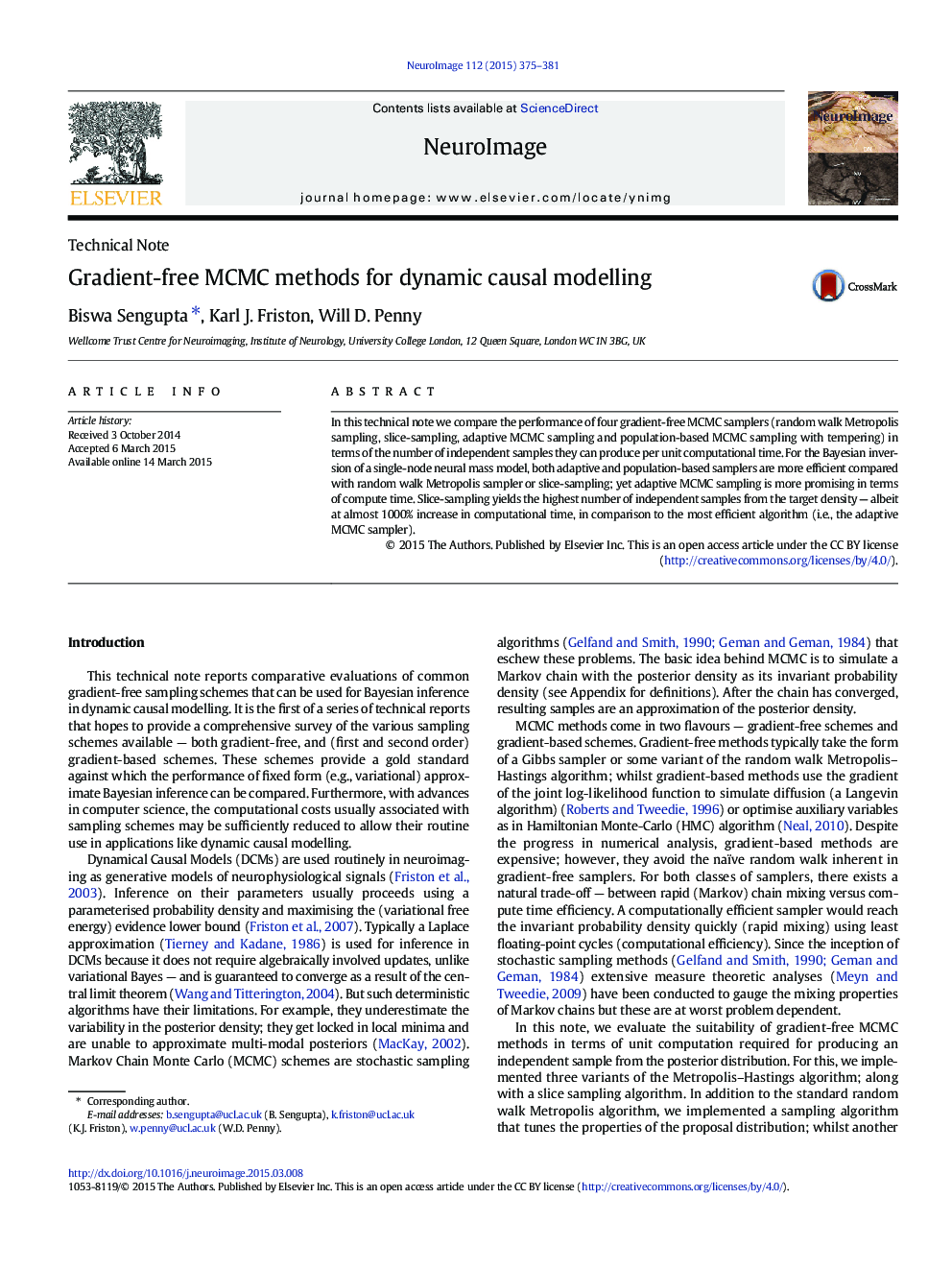| Article ID | Journal | Published Year | Pages | File Type |
|---|---|---|---|---|
| 6024996 | NeuroImage | 2015 | 7 Pages |
Abstract
In this technical note we compare the performance of four gradient-free MCMC samplers (random walk Metropolis sampling, slice-sampling, adaptive MCMC sampling and population-based MCMC sampling with tempering) in terms of the number of independent samples they can produce per unit computational time. For the Bayesian inversion of a single-node neural mass model, both adaptive and population-based samplers are more efficient compared with random walk Metropolis sampler or slice-sampling; yet adaptive MCMC sampling is more promising in terms of compute time. Slice-sampling yields the highest number of independent samples from the target density - albeit at almost 1000% increase in computational time, in comparison to the most efficient algorithm (i.e., the adaptive MCMC sampler).
Related Topics
Life Sciences
Neuroscience
Cognitive Neuroscience
Authors
Biswa Sengupta, Karl J. Friston, Will D. Penny,
